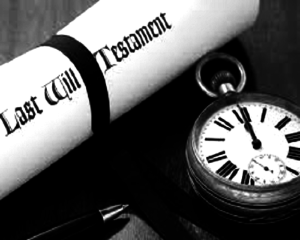- Complete our Secure On Line Form to obtain a quote. (Obligation free)
- We will provide you with a quote and timeline to complete.
- Once you accept the Quote your Will/s and/or Power of Attorney/s shall be drafted.
- Once you have placed funds to cover the cost in our Trust Account then we shall organise a telephone conference where a Solicitor will provide you with specific advice as to the nature and effect of your document/s. You will then be forwarded the document/s with instructions, for you to execute (Sign).
- Minor amendments can be made at no additional cost.
- You can execute the document/s by attending our office or elsewhere, at your convenience.
- You may deposit the document/s at our office to be secured in our Safe.
Will & Power of Attorney

The preparation and planning of your will is a task often avoided.
It is natural to neglect talking to someone about family and assets should something happen to us. However, it is an incredibly important task and it is a task that our understanding team at Hodgson Lawyers will be able to assist you.
A succession plan must be in place that makes the transition easy not only for yourself but also for your family or employees and that minimises the chances of the business having to be sold up when you leave.
At Hodgson Lawyers, we offer one of the easiest and most cost-effective ways to prepare a valid will.
A simple will essentially appoints one or two persons as Executors of your Estate and distributes the Residuary of your Estate to your spouse and/or children.
A more complex Will involves Estate Planning, blended families, setting up trusts and excluding dependents. Estate planning goes beyond drafting a will – it includes:
- The assessment of assets
- Advice regarding the possibility of claims against the estate by third parties
- The protection of assets
- Estate planning is an active process of re-evaluating the estate when circumstances in life change, such as marriage, divorce, buying or selling of major assets such as your home or a change in business ownership.
A successful plan is made involving all family members as it will take into account not only provisions for your retirement income but also the plans, aptitudes and existing assets of younger generations.
If your wishes go beyond a simple Will then we suggest you start this process with a 30 minute free consultation.
YOUR WILL in a few easy steps
What is a Will
To maximize the likelihood that your wishes are carried out, you want a will that is set out in writing, and signed by you and your witnesses.
If your will does not meet these standards, your instructions may not be carried out.
We will ensure that your Will is prepared in accordance with the requirements of the Succession Act 1981 (Qld)
At least one executor must be appointed in your will, who is responsible for managing your estate to its conclusion. They must ensure the contents of your will are followed exactly. Who you choose as an executor depends on your own personal preference. Some people choose to use the solicitor who made their will, whilst others may choose a trusted friend or family member. Ideally, you should appoint at least two executors.
The signing of your will ideally should be witnessed by two independent witness who are over the age of 18 and present at the time you signed the will. They should not be beneficiaries named in the Will.
Why do I need a will?
Those who do not have a valid will are known to die ‘intestate’.
The term also applies where a will only specifies actions for part of an estate, with the remaining provision declared ‘intestate’.
In order for your will to be legally binding, it needs to be properly witnessed and signed. While you can use a template, it’s advised you discuss your requirements with a legal professional to ensure everything is as you wish. At Hodgson Lawyers we are experts in the legal process of making a will, so don’t hesitate to get in touch and we will be happy to assist you.
A concise will may also help your family avoid a lengthy probate process. The clearer your wishes, the simpler and swifter the process will be.
You can also use your will to disinherit any individual you do not wish to benefit from your death, with clear specification as to why.
Any new will and testament you make supersedes any previous versions and, once signed, revokes the contents of such.
Your last will and testament has no legal authority prior to your death.
What is the purpose of a will?
Ensuring your spouse or partner receives all your possessions. If this request is not clearly specified within your will, they may not automatically do so, which may lead to challenges or disputes of your will
Appointing a legal guardian for any children who are minors (classified as aged under 18) at the time of your death. This guardian can also be appointed to manage any inheritance your children may receive until they reach their majority
Appointing those you wish to manage any specific part of your estate
Specifying what you wish to happen to your property or possessions should your named beneficiaries die before you
Designating any specific bequests such as heirlooms or artwork, plus any charitable donations
Your specific funeral wishes, such as whether you wish to be buried or cremated and any ceremony-based requests
Related Articles

Haven’t found what you are looking for?
Book online for a free 30 minute telephone consultation.
A Power of Attorney
General power of attorney
A general power is used to deal primarily with financial and legal matters, other than to exercise powers for personal matters as defined in the Act.
This type of power has no effect once a person becomes incapable. See section 18 of the Powers of Attorney Act 1998. It is often used when a principal expects to be absent from the jurisdiction for a particular period and wishes their attorney to deal with ongoing matters during the principal’s absence.
If the principal does not want the attorney to have unlimited powers, this can be provided in the form.
Enduring power of attorney
An enduring power is used to deal primarily with financial matters and/or personal matters for the principal who could lawfully do them if they had the capacity. Personal matters include health matters but do not include ‘special personal matters’ or ‘special health matters’. See Schedule 2 of the Powers of Attorney Act 1998.
A principal may only give a direction about a special health matter in an advance health directive. Alternatively, in particular circumstances the tribunal may consent to special health care. See section 68 of the Guardianship and Administration Act 2000.
The power may be limited, as indicated in the form.
If an attorney's power depends on the principal having impaired capacity, a person dealing with the attorney may ask for evidence, for example, a medical certificate to establish that the principal has the impaired capacity.
Section 29 of the Powers of Attorney Act provides for an attorney's eligibility for appointment.
The functions and duties of the attorney are set out in the Act as varied by the appointment.
What is the purpose of a Power of Attorney
However, as a matter of good practice, when preparing powers of attorney they should be drawn as enduring powers of attorney thereby providing for the unforeseen circumstance that might see the principal unable through sickness or accident to run their own affairs. There is no need to have the attorney sign acceptance of the power until it is required for use and if kept with the principal's will there is no opportunity for misuse.
at which time the attorney must continue to act in the best interests of the principal even though unable to obtain authorisation from the principal.
A power of attorney that contains specific conditions and limitations is considered to be a limited power of attorney, and restricts the attorney’s authority to carrying out only the acts specifically listed within the power of attorney, subject again to restrictions that limit the things that a principal can lawfully authorise an attorney to do.
When appointing an attorney, a principal needs to consider closely the scope of the authority that they wish to give to their attorney, and recognise that a general power of attorney should only be given to an attorney such as a spouse, who can be trusted not to abuse or misapply such a wide authority.
What an attorney can’t do
Give consideration to the fact that, whilst an attorney can be authorised to do, on the principal’s behalf, almost anything the principal can lawfully do, an attorney cannot be authorised to carry out an unlawful act or do certain things. For example, an attorney cannot:
(a) vote for the principal;
(b) make decisions about the care or wellbeing of children, or about adoption or surrogacy or matrimonial/personal partner matters;
(c) make or revoke a will or power of attorney;
(d) manage the estate of the principal after their death.
This list is not exhaustive. Other laws might exclude an attorney from being able to attend to some other matters. For example, the respective terms of use of ‘digital assets’ such as email accounts, domain names and Facebook need to be carefully reviewed as many provide that only the principal, and not an attorney or anyone else, can access or manage them, and breach can entail committing a serious civil and/or criminal offence.
Diference between a Power of Attorney and an Enduring Power of Attorney.
An enduring power of attorney continues to have effect even after the principal loses capacity.
In order for the power to be an enduring power of attorney the instrument must express that it will continue after the principal lacks capacity
Related Links

Haven’t found what you are looking for?
Book online for a free 30 minute telephone consultation
Child Safety & Protection Matters
 We understand that as a parent you will be distressed in the knowledge that the Department of Child Safety have intervened into your parenting and removed or have threatened to remove your children from your care.
We understand that as a parent you will be distressed in the knowledge that the Department of Child Safety have intervened into your parenting and removed or have threatened to remove your children from your care.
Our role as lawyers in this area of Law is to help you understand the process that you are involved in, the reasoning why Child Safety have taken the action that they have or are threatening to do and attempt to assist you in finding the quickest and shortest -path to having your Children back in your care.
When you engage us:
- We shall inform the Department of Child Safety that we act for you;
- Advise you generally with respect to your legal obligations, responsibilities and rights in the Court process;
- Attend mentions on your behalf;
- Attend the Family Group Meetings with you and speak on your behalf;
- Attend any Court Ordered Conferences and speak on your behalf;
- We shall provide you with legal advice as to the progress of your matter
- We shall request that the Department do all things necessary to commence an assessment of you as a parent ‘willing and able’ to care for the child/children;
- We shall request the Department to ensure regular personal contact to occur between you and your child/children until this matter is resolved.
- We shall request the department to provide us with details of their protective concerns and assist you in developing a strategy to defeat those concerns.
- Ultimately if the department is seeking any type of Order from the Court then it is available for you to oppose their application and we can assist you in preparing your paperwork for that process.
Child protection orders
There are several types of child protection orders:
All child protection orders have time limits on them. The aim is to return your child to your family if the need for protection can be resolved.
Case conferencing

Book online a 30 minute free telephone consultation to see if we can help.

Preliminary temporary orders
There is little you can do to contest the 3 day temporary assessment order however a 28 day CAO can be contested dependent on whether the Department are seeking custody orders or investigative orders.
Directive order
Supervision order
Short term custody orders
Short term guardianship order
Long term Guardianship Orders
Magistrates Court
Related Articles

Haven’t found what you are looking for?
Book online a free 30 minute telephone consultation to see if we can help
They are a community-based, not-for-profit Australian organisation with no religious affiliations. Their services are for all members of the community, regardless of religious belief, age, gender, sexual orientation, lifestyle choice, cultural background or economic circumstances.
They offer services around the country that include counselling, family dispute resolution (mediation) and a range of family and community support and education programs.
They are a federation of service providers in each Australian state and territory and have a national office based in Canberra.
Related Links

Haven’t found what you are looking for?
Book online a free 30 minute telephone consultation to see if we can help.
Traffic Law
The team at Hodgson Lawyers have represented many clients facing traffic matters.
Whether you’ve been caught drink driving; driving on a suspended or disqualified licence; or been charged with careless or dangerous driving – we can help.
Our lawyers will also help give you the best chance at acquiring a Restricted Work License or Special Hardship Order.
We understand how important your licence is to your job; your family; and your freedom.
We will investigate your case; help prepare you for your Court appearance; and argue strongly on your behalf for the best outcome.
Scroll down for further information.
Drink Driving
Serious Traffic Offences
Careless driving
Special Hardship Licences
Drug driving
Speeding fines, traffic camera offences, traffic violations and hooning offences
.
Case conferencing
Restricted work licences
Bail applications
Related Articles

Scroll down for Related Links
Related Links

Haven’t found what you are looking for?
Book online a 30 minute free telephone consultation
Criminal Law
Have you been charged or being investigated. Get in early and speak to someone who can help?
Read MoreConveyancing
You don’t need us to tell you how stressful buying and selling a house is. Let us help you.
Read More
